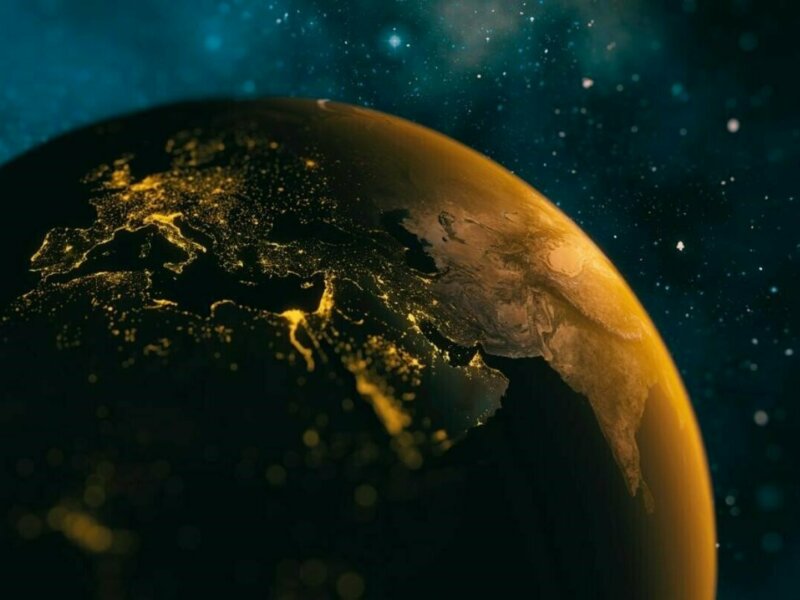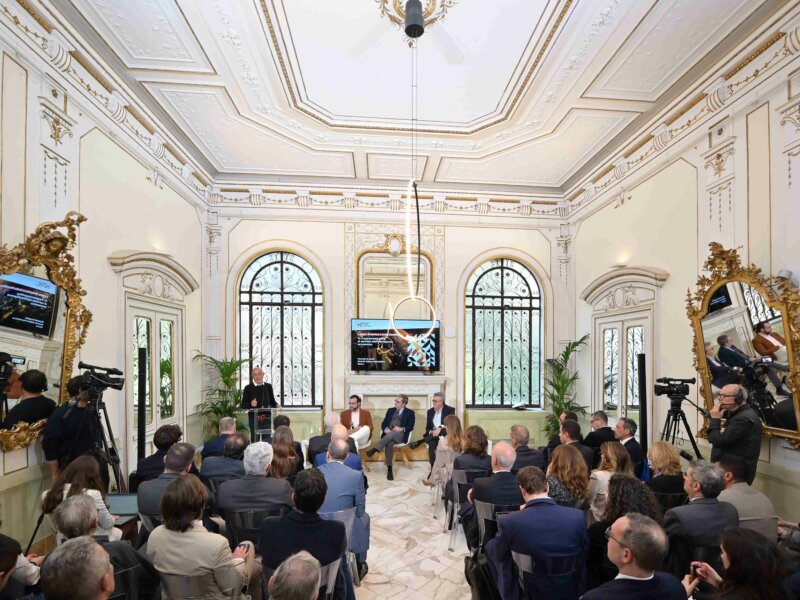The Mediterranean as an undersea connection hub
The Mediterranean, increasingly a bridge between East and West, is key to the deployment of undersea internet infrastructures. An analysis by Emanuele Rossi

The Official CTBTO Photostream, CC BY 2.0, via Wikimedia Commons
Greece and Saudi Arabia’s recent joint venture to build the so-called “East to Med Data Corridor” undersea Internet cable – agreed upon during Saudi crown prince Mohammed bin Salman’s State visit to Athens – shines the spotlight back on the infrastructural importance of the Mediterranean Sea. On how its waters link East and West together and on its strategic interest for several international actors.
Undersea cables work as the main arteries through which Internet data flows – from the most sensitive information to those concerning the dozens of millions of citizens connected by such cables. Italy has also raised its focus on them, building up a security and monitoring system based on public-private partnerships.
Observing – even controlling or altering – that digital lifeblood would provide a treasure trove for espionage and consequently for the strategic interests of any country. Any interruption of that flow – be it accident or sabotage – could not only cut off a State but an entire region from the world. Needless to say, consequences could be potentially destructive.
Modern technology makes for easy access below the water surface, with civilian yachts employing undersea drones that can be used for plain-clothes operations on cables. There is an increasing necessity to build up a “situational awareness”, as technical-military lingo puts it, towards the surveillance and protection of such critical infrastructures, carrying over 95% of Internet data across the world.
Mediterranean regional security is based for the most part on the exchange of information: bathymetric projections, surveillance and monitoring of undersea activity become key instruments for the safeguard of the cables across which most of such information is channeled.
Undersea Internet cables have become a crucial concern for underwater dominance and the protection of the national interest. A strategic environment that needs to be safeguarded throughout the Mediterranean’s several permutations: also, as a reflection of the war in Ukraine, from which new rivalries could spill over in the basin.
NATO members have long planned on espionage-sabotage scenarios on undersea cables by rival powers – something that could have happened already. The Mediterranean plays a key role in that dimension as well. Crosscut from East to West by Asian-European communications and by those directed to the Atlantic, the basin constitutes a strategic hub for global connections. Gibraltar and Suez (crossed by 19 cables) and the Sicily Channel trace the contours of this undersea dominion. The Italian island possesses the geographical (and thus geopolitical) credentials to become a “point-of-presence”, a strategic nexus for the digital network connecting Southern Europe to North Africa and the Middle East.
Investments on undersea cables, whose overall length is assessed at around 1,3 million kilometers, require high levels of international cooperation. The I-ME-WE (standing for India, Middle East, Western Europe), linking up Mumbai to Marseilles, is a case in point: a 480 million dollars effort, spanning 13.000 kilometers to service eight countries – India, Pakistan, United Arab Emirates, Saudi Arabia, Egypt, Lebanon, Italy and France. Or the SEA-ME-WE-3 digital spine, spanning 39.000 kilometers (around the length of terrestrial circumference), linking 39 countries (and 92 investors), starting from Northern Germany to cut across the entire Mediterranean basin, the Red and Arabic Sea, south through the Indian Ocean to spread across the Pacific, from Australia to Korea.
In 2008, damage to this cable left almost two million people without access to the Internet. The country that suffered most was the United Arab Emirates, a commercial and financial international hub that cannot afford to be cut off from the digital world. Easy to understand why underwater Internet infrastructure – the physical component of a virtual world – and their security have accrued increasing importance for certain actors.
“Russia has grown the capability to put at threat those undersea cables and potentially exploit those undersea cables” to its own advantage, Admiral Sir Tony Radakin, Chief of the UK Armed Forces, and a veteran of 30 years of service, told the Times early this year. A focus on undersea cables is part of the complex system through which Moscow aggressively pursues its interests: hybrid actions featuring both conventional and digital targets (the so-called Gerasimov Doctrine, referring to the head general of the Kremlin’s armed forces).
Considering the percentage of Internet communication passing through undersea cables, carrying a daily 10 billions’ worth of financial transactions; the value of such infrastructures in the digitalization of crucial regions such the Middle East or Africa (which depends on digital infrastructure for its development); considering that the Russian armed forces have equipped their main Directorate for Undersea Research, known by the GUGI acronym or as Unit 40056, with custom submarines for special missions; then it becomes easier to understand NATO’s focus on the issue and why the European Union includes it within the scope of its cybersecurity debate.
Moreover, according to a recent White House briefing, China has allocated 600 million dollars to build six undersea cables set to link Singapore to France through the Horn of Africa and Egypt. A cause for US alert concerning the risk of Chinese information control. The development of Beijing’s infrastructural presence would strengthen its influence over Africa and add to the ambitious PEACE undersea cable project, aiming to link Gwadr (a Pakistani port providing sea access to the Belt and Road Initiative) to Marseilles.
Chinese intervention on Mediterranean infrastructure is a topic of political and geopolitical import, as well as one of the activities that have led Brussels to accuse Beijing of dumping. The Chinese Democratic Republic does not play according to European rules in terms of competition or general policy, sometimes facilitating bilateral action with individual actors through the extensive deregulation offered by the Chinese model.
But the truly crucial dimension is the political one, in which Europe’s capability to move towards the future will be put to the test. Mediterranean connections, including undersea ones, can serve to build parcels of European digital sovereignty. Europe can become a lead actor for its neighbors by using the Mediterranean basin as a launching platform to enhance strategic activities, such as digital connections. Facilitating programs for their security is just one of such activities.
“If the EU cannot establish its role in the region, other global actors will fill the vacuum. They will do so by enforcing technological dependency, as in the case of China’s established standards, which could prove damaging for European interests”, wrote the European Council of Foreign Relations in a May 2021 paper.
As global attention is focused on energy infrastructure – which has proven crucial in the wake of the disruption of energy markets caused by the Ukraine war – the role of digital connections is just as important. Economic, commercial, industrial, and crucially social, political, and human development all stem from digital connectivity.
The European Union would have all interest in securing those objectives through a coordinated, systemic effort, also with a view to the tutelage of strategic sectors such as the Sahel, Middle East and North Africa. After all, one of the key themes of US President Biden’s tour to Israel and Saudi Arabia concerned Washington’s interest in widening ties between the Gulf (and Middle Eastern) countries and Russia and China – also identified as systemic rivals by the European Union. Telecommunications are a starting point to achieve such a complex objective.



